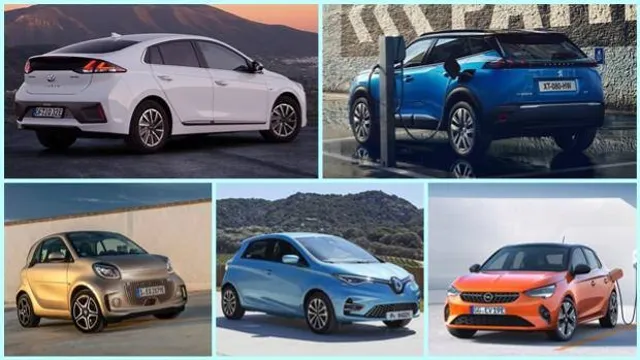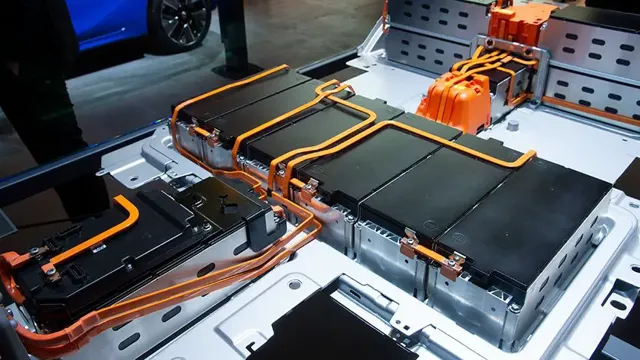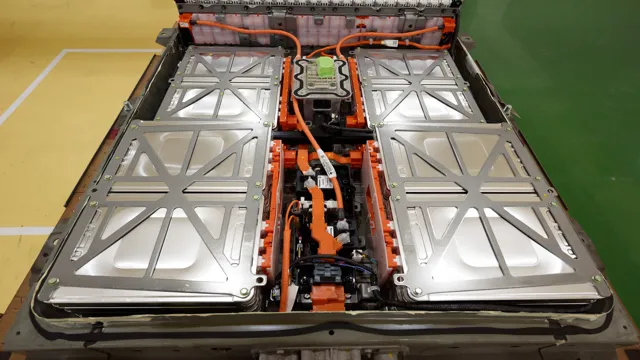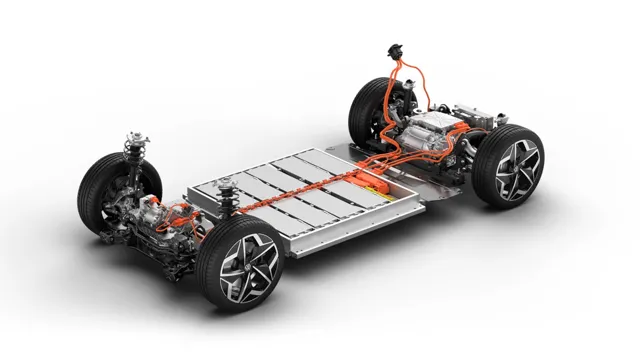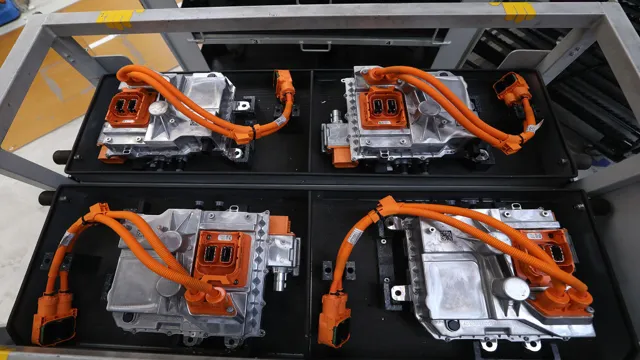The Eco-Friendly Revolution: Exploring the Advantages and Benefits of Owning an Electric Car
Electric cars have been around for quite some time now, but only recently have they gained significant popularity. With a shift in the automotive industry towards sustainable and eco-friendly transportation, electric cars have emerged as a viable alternative to gasoline cars. As the world becomes more environment-conscious, owning an electric car has become an increasingly attractive option.
In this blog, we’ll explore the benefits of owning an electric car, including its cost-effectiveness, convenience, and impact on the environment. Whether you’re an environmentally conscious individual or someone looking to save on gas expenses, you’ll find this blog to be an insightful read. So, sit tight, and let’s dive into the world of electric cars.
Environmental Impact
One of the biggest benefits of owning and driving an electric car is the positive impact it can have on the environment. Unlike traditional gasoline-powered vehicles, electric cars release zero emissions while on the road. This means that they do not contribute to air pollution and therefore help to reduce greenhouse gas emissions.
Plus, with more and more electric cars being produced and sold each year, the market for them is growing, which drives down their cost making them more accessible to the general public. By making the switch to an electric car, we can all do our part to help create a cleaner, healthier planet for future generations.
Decreases Dependence on Fossil Fuels
Switching to renewable energy sources and reducing dependence on fossil fuels can have a significant positive impact on the environment. Fossil fuels release harmful gases and pollutants into the air, contributing to climate change and causing air pollution. By transitioning to cleaner energy sources like solar, wind, and hydroelectric power, we can reduce our carbon footprint and limit the amount of harmful emissions released into the environment.
Furthermore, renewable energy sources are much less resource-intensive than fossil fuels, which require large-scale extraction, transportation, and refining operations. This makes renewable energy a more sustainable and environmentally friendly choice. Imagine a world where we no longer have to rely on limited and polluting resources like oil and coal and can instead harness the power of the sun, wind, and water to meet our energy needs.
It’s not just a dream—it’s a reality that we can work towards by embracing renewable energy.
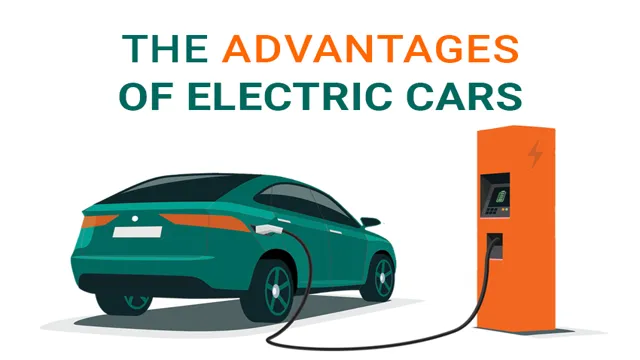
Reduces CO2 Emissions
Reducing CO2 emissions is crucial to mitigate the environmental impact of human activity. With the world’s population growing rapidly, the amount of greenhouse gases released into the atmosphere is also rising. This phenomenon has led to global warming, causing disastrous impacts on the planet, such as vicious weather patterns, rising sea levels, and loss of biodiversity.
One of the most effective ways to reduce CO2 emissions is to support the use of renewable energy sources such as wind, solar, and hydropower. By investing in clean energy, we can reduce our dependence on fossil fuels, which are the primary cause of greenhouse gas emissions. Moreover, renewable energy sources have a minimal impact on the environment, as they produce no air or water pollution.
In conclusion, by transitioning to renewable energy sources, we can significantly reduce CO2 emissions, conserve natural resources, and preserve the environment for generations to come. Let us make a collective effort to shift towards a sustainable future to mitigate the damaging effects of climate change.
Cost Savings
One of the major benefits of electric cars is saving money on fuel costs. Electric cars run on electricity, which is cheaper than gas. Not only that, but the cost of electricity is also more stable and predictable than gas prices.
Electric cars also have fewer moving parts than a gas car, meaning there are fewer things that can break and require expensive repairs. Maintenance costs for electric cars are also lower because there are no oil changes and fewer parts to replace. Additionally, electric cars qualify for tax incentives and rebates, making them even more financially appealing.
Investing in an electric car may seem like a more significant upfront cost, but the long-term savings make it a practical and affordable option.
Lower Fuel Costs
Lower fuel costs are a huge advantage to anyone who relies on driving as a means of transportation. Not only can it save you money in the long run, but it also reduces your carbon footprint. One easy way to save money on fuel costs is to keep your vehicle well-maintained, including regularly checking tire pressure and changing the oil.
Another option is to carpool with coworkers or friends, sharing the cost of fuel and enjoying a more social commute. However, perhaps the most effective way to lower fuel costs is to invest in a more fuel-efficient vehicle, such as a hybrid or electric car. While these options may require a larger initial investment, they pay off over time with lower fuel costs and fewer emissions.
By prioritizing fuel efficiency, you can not only save money but also contribute to a more sustainable future.
Potential Government Incentives
When it comes to investing in renewable energy, one of the biggest concerns for businesses is the cost. However, potential government incentives can offer significant cost savings that make this investment much more attractive. For example, many governments offer tax credits or subsidies for businesses that invest in renewable energy sources like solar or wind power.
In addition, some jurisdictions may offer grants or loans to help offset the initial cost of installation. These incentives not only help businesses save money, but they also promote the transition to clean energy and reduce dependence on fossil fuels. So, if you’re considering investing in renewable energy for your business, be sure to explore potential government incentives that can help you save costs and make a positive impact on the environment at the same time.
Less Maintenance and Repair Costs
When businesses invest in quality commercial equipment, they’re investing in cost savings down the line. One of the biggest benefits of high-quality commercial equipment is the ability to perform at a high level without requiring frequent repairs or maintenance. This means less time and money spent on repairs and more time spent actually using the equipment to get work done.
Quality equipment is designed to last longer, reducing the need for frequent replacements and repairs. When repairs are necessary, they’re likely to be covered under a warranty, which can save businesses even more money in the long run. By investing in quality commercial equipment, businesses can enjoy the peace of mind that comes with knowing their equipment will perform reliably, day after day, without requiring costly and time-consuming repairs.
Convenience
One of the biggest benefits of driving an electric car is the convenience that it provides. For starters, electric cars can be charged at home, meaning that you don’t need to go to a gas station on a regular basis. This saves a lot of time and effort, since the charging process can take place overnight while you’re sleeping, or during the day while you’re at work.
Also, electric cars often require less maintenance than traditional vehicles. Since they have fewer moving parts, there is less that can go wrong. And with fewer parts in the vehicle, there is less to replace if something does break down.
All of this adds up to a car that’s not only better for the environment but also easier on your wallet and your schedule. So if you’re looking to make the switch to a more convenient form of transportation, an electric car could be the perfect fit for you.
Availability of Charging Stations
The availability of charging stations has become a crucial aspect of electric vehicle ownership, granting drivers the convenience to recharge their vehicles without worrying about range anxiety. With the surge in electric vehicle sales in recent years, many charging stations have popped up across the country. These stations are strategically located in cities, highways, and public spaces to ensure that drivers have easy access to a charging point whenever they need it.
The convenience of these charging stations cannot be overstated, as they make it possible for electric vehicle owners to travel long distances without worrying about where to recharge. Additionally, many charging stations provide drivers with the option to reserve a slot in advance, ensuring that there is always a charging point available when needed. Overall, the availability of charging stations is a significant development in the electric vehicle industry and has made owning an electric vehicle more practical and convenient than ever before.
Quieter and Smoother Ride
Car rides can often be tiresome and uncomfortable, but with the advances in technology, cars are becoming quieter and smoother than ever before. Noise-cancelling technology and improved suspension systems have made traveling in vehicles much more convenient. With a quieter ride, passengers can listen to music, talk to one another, or just relax without the constant buzz of the engine and road noise.
In addition, smoother rides mean less jarring movements and a more comfortable experience for everyone inside the car. This is especially beneficial for those with back or neck problems, who may find traditional car rides painful. By reducing noise and vibrations, modern cars have made traveling more pleasant than ever before.
Plus, with this increased convenience, road trips and daily commutes alike become less of a chore and more of an enjoyable experience. So why not upgrade your car to enjoy a quieter and smoother ride on your next journey?
Overall Driving Experience
One of the greatest benefits of driving an electric car is the overall driving experience. Electric cars are incredibly smooth and quiet, providing a more relaxed and peaceful ride than traditional gas-powered vehicles. Additionally, electric cars have instant torque, which means that they can accelerate quickly and easily.
This makes driving an electric car both fun and practical. Furthermore, electric cars are highly efficient, so you can drive longer distances without needing to refuel or recharge. This not only saves you time, but also money in the long run.
Overall, the driving experience in an electric car is enjoyable and convenient, making it an excellent choice for those who want to save both the environment and their wallets.
Conclusion
In conclusion, choosing an electric car over a traditional gas-powered vehicle not only benefits the environment, but also your wallet in the long run. The savings in gas and maintenance costs can add up quickly, and the convenience of easily charging at home or at a public charging station cannot be ignored. Plus, who doesn’t love the futuristic feeling of driving a car powered by electricity? It’s time to join the electric revolution and experience the benefits for yourself.
“
FAQs
What are the main benefits of owning an electric car?
Owning an electric car has several benefits, such as lower operating costs, reduced environmental impact, and a smoother driving experience. Electric cars are also generally more reliable and require less maintenance than traditional gasoline cars.
How does owning an electric car impact the environment?
Electric cars have a much lower environmental impact than gasoline cars due to their lack of emissions, which can help reduce air pollution and combat climate change. Additionally, many electric cars are powered by renewable energy sources, further reducing their impact.
Are there any government incentives available for purchasing an electric car?
Yes, many governments offer incentives and tax credits for purchasing electric cars in order to encourage their use and reduce reliance on gasoline. These incentives can include grants for purchasing the car, charging station installations, or tax credits on the purchase price.
What is the average range of an electric car on a single charge?
The average range of an electric car varies depending on the make and model, but a typical range is around 100-150 miles on a single charge. However, some newer models are able to achieve ranges of over 300 miles.
